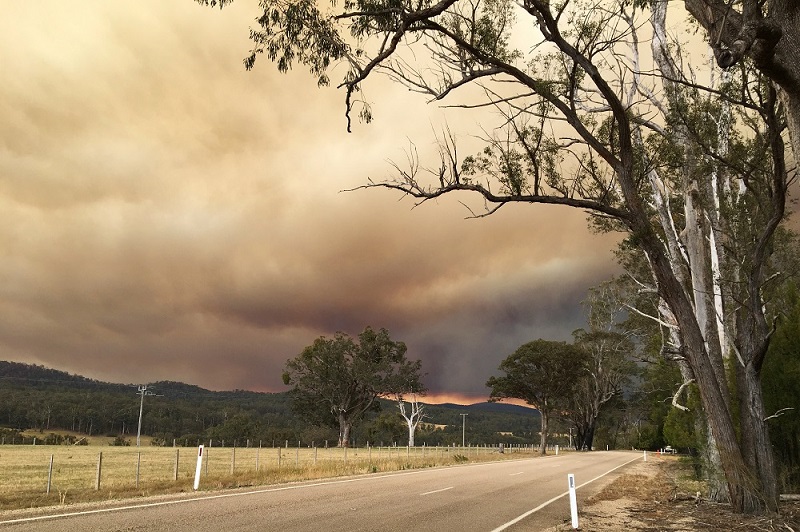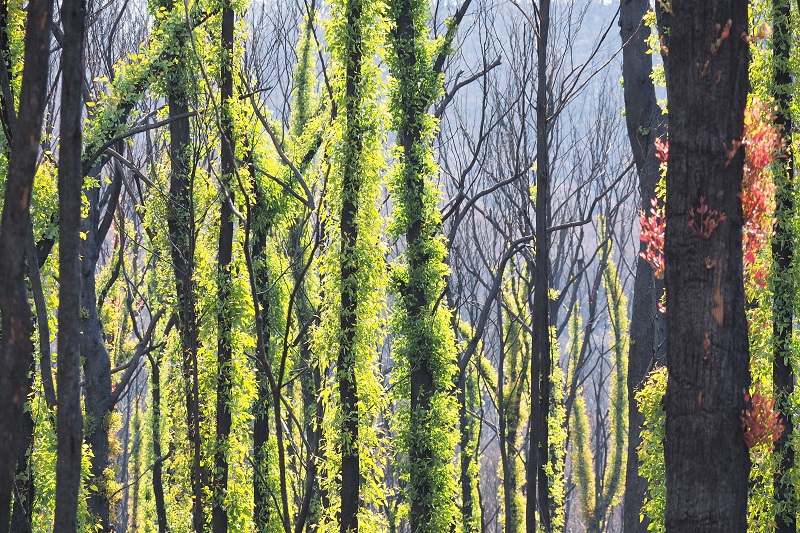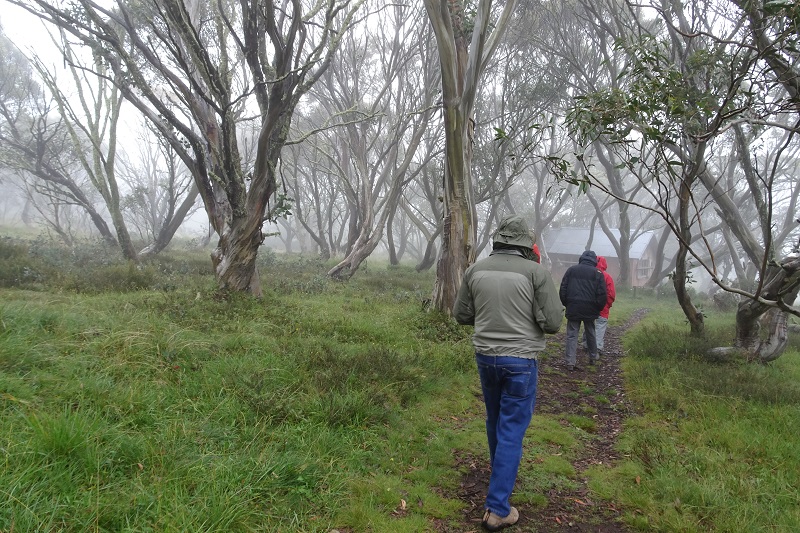Autumn update 2020

Here at Gippsland High Country Tours we thought we had a Summer never to forget with bushfires in East Gippsland, but it looks like all of 2020 will be a year that the whole world won’t forget in a hurry.
As everyone’s lives are being turned upside down by COVID19 virus, it has been hard to decide how and when to communicate about our summer fire experiences and what it means for our program into the future, while dealing with long-term restrictions on travel due to the virus threat. The immediate outcome is that all our remaining Autumn tours have been cancelled (with full refunds) and a tentative Spring/Summer program will be developed – subject to the virus situation as the months progress.
Summer Bushfires in East Gippsland
Back in late November last year (2019) with East Gippsland suffering prolonged drought conditions, lightning strikes on Nov 21 ignited dozens of fires across the landscape in Eastern Victoria. Forest Fire Management and Parks Victoria crews aong with CFA volunteers worked tirelessly to contain and control these but despite their best efforts a small number of these fires grew ever larger. One of these to the east of Bruthen was a direct threat to our home (and tour base) on a number of “bad days” in November, with spotfires as close at 2.5km away. We remained safe and as the weeks passed, control lines were made effective and this fire was declared “safe”.

Fire directly to our north at Bruthen and too close for comfort.
Then in late December, horrible weather conditions with strong winds meant a couple of other fires to our north and west (plus other parts of East Gippsland) took off, did big “runs” and joined together. Further hot windy weather saw extreme fire danger for December 30 when we took the advice of authorities and despite having spent many days preparing our home at Bruthen, we packed up and evacuated. Bruthen was spared, but neighbouring communities including Sarsfield and Buchan were hit hard with many houses lost and properties damaged. Our family farm near Bruthen had a lucky escape with a spot fire in the paddock next door burning right up to our fence. After a few quiet days, there was a further evacuation order less than a week later – again we were lucky. A similar story was repeated across East Gippsland, each slightly different, and many not so lucky as us.
So, after a tense and worrying time, we are fortunate to live in a small unburnt area of about 9x9km. Whether directly impacted or not, local communities across East Gippsland are reeling from the stress and sense of loss – not just of lives, homes and properties, but of livelihoods, wildlife, the beauty of much-loved places and the loss of normality.
Recovery
The loss of biodiversity values across such a large landscape is hard to comprehend. Nature is doing its best to come back – with the help of some wonderful rainfall soon after the fires and followed up with more during February. For many places, green is beginning to dominate over black. Wildlife that miraculously survived the fire, are finding food and shelter again. The new coppicing growth on eucalypts is full of insects, which in turn attract the birds.

Re-sprouting eucalypts are transforming the colour of the blackened forests
Shrubs and ferns are sprouting again, and there is some ground cover vegetation for wildlife to hide in. Lizards scuttle around hiding under burnt rock and logs and remote cameras set in East Gippsland forests are recording Goannas and a range of mammals including the threatened Long-footed Potoroo. Its not all good news though – in some of the most intensely burnt landscapes recovery is pitifully slow and evidence of wildlife is very scarce. Heavy localised thunderstorms caused massive erosion on some burnt areas and turned creeks and rivers into thick black mud that no fish or invertebrates can survive in. Rescue missions by DELWP staff to save some aquatic species has ensured “insurance” populations in captivity until the streams improve.

Yellow-bellied Water skink (Eulamprus heatwolei hiding in a crevice of bark on a burnt log.
Communities are working towards recovery too. Droves of volunteers from tradies to backpackers to grey nomads have supported fire affected land owners to replace fencing, deal with burnt trees, do general property clean-ups or odd jobs. Spontaneous catering popped up offering meals in fire affected communities. So many community organisations have worked hard to provide support of all sorts. Once roads were safe and re-opened small towns have welcomed visitors who have come in large numbers to have a meal at a local pub, stay in local accommodation or fill their “Empty Esky”. Unfortunately for now, this has to stop and everyone needs to manage their own safety and that of the community at large with regard to the spread of COVID19. East Gippsland will be ready and waiting to welcome everyone back as soon as this current crisis is over.
Our program of ecotours and walks
We had to cancel our very popular Alpine Discovery Tour in early January due to direct fire threat. Thankfully the alpine area around Dinner Plain and Mt Hotham did not burn, so with roads and parks re-opened we were able to go ahead with our Mt Feathertop Adventure in early March (see our cover photo). With no tours operating for at least 6 months and the likelihood of uncertainty even after that, we won’t be promoting any of our usual tours for a while, but I hope to put some energy into sharing regular stories of local nature experiences and fire recovery via the Blog page of our website and shared via our Facebook page. So please keep an eye on these for some lovely photos and great stories in the coming months.

Earlier this month, beautiful unburnt snowgums – Alpine National Park
If you are looking at our program on the website and interested in one of the tours listed, please let us know. We will not be taking any bookings or deposits for tours at present but will be accepting “Expressions of Interest” for tours so we can follow up with final details when available. Right now exact dates and prices are not available for all tours, so please be patient, but if I know you are interested, you will receive details as soon as the tour looks likely to be able to proceed and details are finalised (and before it is advertised publicly).
Our normal annual Newsletter will come out during the year when the prospect of re-commencing tours becomes clearer.
Stay safe everyone and please stay home, some tough times ahead but on the other side nature experiences will still be there!

Jenny Lawrence, March 25, 2020
Go to: Next Story (Tale of two nests)
Go to: Previous Story (Discover the language of nature)
Go to: Blog index page